- Home
- Vince Flynn
Separation of Power Page 7
Separation of Power Read online
Page 7
The taxi dropped them off two blocks from the White House, and the two men nonchalantly approached the northwest gate. They cleared security and were escorted to the White House Situation Room by one of the Presidents aides. Without having to be asked, Freidman's bodyguard headed down the hall to the White House Mess. His boss was secure inside the White House. The man would use the opportunity to get a cup of coffee and see if he could overhear any useful conversations. When Freidman entered the small conference room in the basement of the West Wing, he wasn't surprised in the least that there were only five people in attendance.
He was a little surprised, however, that no one rose to greet him. He took note of the mood and the lopsided seating arrangement. The President was where he expected him to be, at the head of the table; Kennedy was opposite the commander in chief at the other end and the chairman of the Joint Chiefs; the national security advisor and the chief of staff were all on one side of the table. Freidman draped his overcoat over one of the four empty chairs on his side of the table and looked to Kennedy to break the frigid air.
Smiling, the head of Mossad said, "Thank you for arranging this on such short notice, Irene."
Kennedy nodded, but offered no words.
Freidman took the hint and sat. Their moods would change when he showed them what he had in his briefcase. Turning to the President he said, "Thank you, Mr. President, for meeting with me. I hope you know we wouldn't have asked if it wasn't extremely important."
Like Kennedy, Hayes nodded, but gave no answer. Yes, the Israelis were their friends, but Hayes was not as blind to the often selfish goals of the Jewish state as some of his predecessors. He had given specific instructions to the others. No warm greetings were to be extended to the head of Israeli Intelligence. Freidman had called this meeting, and it would be his responsibility to do the talking.
"Have you noticed anything alarming out of Baghdad recently?" Freidman looked to Kennedy.
Before Kennedy could answer the President said, "Mr. Freidman, I'm rather short on time this morning. I think it would serve us best if you told us what this is all about." Freidman placed his elbows on the table and said, "We have unearthed some very alarming news, Mr. President, and I'm afraid you aren't going to like it one bit."
Freidman reached for his briefcase. After entering the combination, he popped the clasps and retrieved a large red legal file. The file was sealed with a string and wax. Freidman broke the seal and extracted a sheaf of papers with a four-by-seven, black-and-white photograph clipped to the front. Sliding the photo over so the President could view the image, he said, "This is Park Chow Lee. He's North Korean. As you might imagine, he sticks out like a sore thumb in Baghdad. Park is a doctor." Freidman extracted several more photos and slid them in front of President Hayes. Where the first photo was posed and clear, these were taken from some distance and were slightly grainy.
"That first photo, Mr. President, of Park in the white lab coat, is him walking into the Al Hussein Hospital in Baghdad." He paused briefly to see if anyone was going to ask any questions. They didn't, so he continued. "There's only one problem with the photo. Mr. Lee is not a medical doctor, he has a Ph. D. in nuclear physics." Confident that he finally had their attention, Freidman decided to sit back and pause for a second.
Kennedy sat at the far end of the table and observed. She could see where this was going. Her daily intelligence briefings had contained some flash reports about Saddam doing business with the economically bankrupt state of North Korea. Saddam was sending them oil, and in return North Korea was sending him arms and technology. It also appeared from where Ben Freidman was heading that they were also trading talent. Kennedy watched as President Hayes briefly looked at her. She gave him a slight nod, confirming that the information was most likely legitimate. She noticed a hint of irritation in the President's face, and wondered briefly if it was directed at her. It probably was. When Freidman was gone she would have to explain why Mossad had beat the CIA to the punch. That was fine. Kennedy had no problem admitting that where the Middle East was concerned they could not compete with Mossad when it came to putting people on the ground.
"We have photographed Mr. Lee coming and going from the hospital for almost three months. He arrives early, leaves late and sometimes even stays for several days."
The photos of Lee were being passed around the table. National Security Advisor Haik picked up on something Freidman had said. "How do you know he's spending the night? Isn't it possible you missed him leaving?"
"It is, but," Freidman pulled out several more photos, "we also know where he and the other North Korean scientists are staying." Freidman passed the photos across the table to Haik.
The President was not in a patient mood, so he asked rather abruptly, "Where is this going, Mr. Freidman?"
"It's going to a very bad place, sir." Freidman exhaled a deep breath. "With the help of Mr. Lee and the other North Korean scientists, Saddam is about to get his greatest wish. In less than one month Saddam will have added three nuclear weapons to his arsenal." President Hayes blinked and said, "What?"
"By the end of the year Saddam will have three fully operational nuclear weapons."
"How is that possible?" Hayes looked to his advisors. "Everything I have been told says we're two years away from having to deal with this. Not a month!"
"Those estimates, sir," stated Kennedy, "were based on Saddam rebuilding his own nuclear program. They did not include him bypassing the developmental stage and purchasing technology, components and scientists from North Korea."
The President was seething. His administration had been making great strides with the North Koreans. At this very moment they were trying to push through a billion-dollar aid package to try to help the anemic North Korean economy get back on its feet. Kim Jong II himself had told Hayes that he would personally bring an end to North Korea 's state-sponsored terrorism. The President told himself to put North Korea out of his mind for the moment. That would have to be dealt with later.
Stabbing his index finger at the photos in front of him, Hayes asked, "How accurate is this information?"
"I consider it to be very reliable, sir." Freidman kept his eyes focused on the President and did not waver.
"How reliable?" Hayes wanted more.
"This is, of course, not to leave this room." Freidman took a moment to look each of the President's advisors in the eye. The mole he had cultivated in the Iraqi regime was the highest Mossad had ever turned. To lose him would be devastating. "We have someone on the inside, and I can tell you nothing more. He is well-placed and highly reliable."
"Under a goddamn hospital," was all General Flood could say. His military mind was already trying to come up with ways to level the building.
"What type of weapons are we talking about?" asked Haik.
"Two of them are ten-megaton nukes designed to be delivered by the new Scud Three missile, and the third is a five-megaton nuke designed to be delivered by bomber or specialized artillery."
The room fell deathly silent. All of them had sat through enough intelligence briefings to know the level of carnage just one of the bombs could cause. Each of the three individually was more than sufficient to level Tel Aviv.
"Mr. President, none of us are happy about this. Least of all the leaders of my country." Freidman paused for a second before continuing. "I have been sent here by my prime minister to inform you that we will not allow these weapons to be deployed." Freidman's tone was calm but determined. Though he had been sent to Washington to get the Americans to do Israel 's dirty work, there was no mistaking the resolve of his people. If the Americans failed to act, Israel would.
President Hayes nodded slowly. He had already deduced as much. There was no way Israel would let a megalomaniac like Saddam join the nuclear club. President Hayes wasn't about to allow it, and he was more than five thousand miles away. The Israelis were separated by only five hundred miles.
Finally, President Hayes asked, "When are you heading back
to Israel?"
"I leave this evening."
Hayes drummed his fingers on the table while he thought of the next step. "Mr. Freidman, I appreciate you making the trip. Could you wait outside for a minute while I have a word with my advisors?"
Freidman collected the photos and placed them back in his briefcase. When he had left the room Hayes took off his suit coat and began pacing. He thought about taking his new director designate of the CIA to task for allowing him to be blind-sided, and then decided it wasn't fair, and in the end probably counterproductive. Instead he said, "Around the horn. I want to hear opinions on what we just heard. Starting with you' Valerie "The President stopped and looked at his chief of staff.
"I think before we do anything we need to confirm that this is really the case."
"Oh, its for real," moaned General Flood. The bear-size warrior had his elbows on the table and his face buried in his hands. "They would never send Ben Freidman all the way to Washington if it wasn't. Besides, we know how eager Saddam is to get his hands on one of these things. He's just found a way with the help of the North Koreans to cut a few years out of the process." "Michael?" asked Hayes.
The national security advisor replied, "We need to make sure this time line is correct, and then we need to get a guarantee from the Israelis that they will not act before we have time to come up with a solution."
"General?"
Flood lifted his face from his hands."I hate to say it, Mr. President, but we need to level this facility, and my guess is Tomahawks aren't going to do the job. We are going to have to put planes over Baghdad. We might lose some people, but they are definitely going to lose people. I mean they put the damn thing under a hospital for a reason. They don't think we have the stomach for it." Flood was extremely concerned. He had been warning everyone who would listen about the problem of nuclear proliferation for years. He leaned forward and looked at the President's chief of staff. "I'm telling you right now' Valerie I know how your mind works. You ten steps ahead of the rest of us. You're thinking of the political fallout this will create. You imagining the reporters standing in front of the hospital while they pull the twisted bodies of children from the rubble. Well let me replace it with some different pictures. Imagine an entire U. S. Navy carrier battle group patrolling the Persian Gulf. Now blink your eyes and they're gone. Over seven thousand men and women vaporized. Imagine a nuclear warhead exploding over the oil fields of Saudi Arabia. Now imagine the entire world economy plunged into a depression because those oil fields are rendered useless for the next hundred years due to radioactivity."
Flood paused just long enough to catch his breath. "That's just for starters. Now imagine Saddam throwing two of these things at Israel, figuring he can wipe them off the map before they have the chance to retaliate. Theres only one problem with that plan. The Israelis aren't stupid. They keep their nukes spread out in secure underground hardened bunkers. Some of those weapons will survive, and whoever is left won't hesitate to return the favor to Saddam. We'll have a full-scale nuclear war in the Middle East. The initial blasts will kill millions. God only knows how many more will die from the fallout, but it won't be pretty. The region will shut down, oil production will screech to a halt, and the economic tidal wave will make the Great Depression look like a hiccup." The President had stopped pacing halfway through the general's rant. Looking at the military's top officer, Hayes was slightly unsettled by the fact that he agreed with everything the man had just said. So much so that a brief shiver ran down his spine. Finally looking to Kennedy he asked, "Irene?"
Kennedy also agreed with everything that had been said so far. "They want us to take care of the problem for them."
"You mean Israel?"
"Yes." Kennedy folded her arms across her chest. "But make no mistake about it-if we don't act, they will."
"Shit." The President walked back to his chair and sat. He tried to decide on a course of action. Leveling a hospital with God only knows how many innocent civilians inside was not a pleasant thought, but taking no action at all, and being confronted with one of the scenarios that General Flood had described, was horrific.
For the first time in his presidency he was honestly scared. He would have to call the Israeli prime minister at some point, but that could wait for a day. The list of people he would have to tell domestically was long, but due to secrecy concerns, most of them would have to wait until the last possible moment. The best move right now was to delegate and manage.
As if he were pulled out of a trance, the President lifted his head and said, "Irene, I want you to take Freidman back to Langley and debrief him personally. Get as much information as you can from him, and then as quietly as possible try to confirm it. But, before you bring any of your people in on this, I want you to call me and tell me what you've learned"
Pointing at the chairman of the Joint Chiefs, the President said, "General, put your best people on this, and give me some options. I want to be prepared to move at a moment's notice if needed."
"Whoa," cautioned Valerie Jones. "Lets slow down a bit. Don't you think we should explore some diplomatic options? We've made a lot of progress with the North Koreans lately. Maybe we could put some pressure on them to pull their people out. I mean, hell, we have an awfully big aid package we can hold over their heads." Jones stopped when the President started shaking his head.
"We're not going to call North Korea, we're not going to call Saddam, the Jordanians or the Saudis, and we most definitely are not going to call the U. N. If Saddam gets the slightest whiff that we're on to him, it's over. He'll move those bombs, and we're back to square one." The President shook his head. "No. We've given him enough chances. He's been told to stop pursuing weapons of mass destruction, and he has ignored the international community at every turn. This time he gets no warning. Those bombs have to be taken out."
CHAPTER EIGHT.
Maryland, Tuesday morning
Congressman Albert Rudin walked through the men's locker room of the Congressional Country Club with a white towel thrown over his shoulder and a pair of shower sandals on his feet. Rudin grew up in the days where swimming at the YMCA required literally nothing. Swimsuits were not just optional, they were forbidden. A towel was for drying oneself, not wearing. Consequently the sixty-eight-year-old politician from Stamford, Connecticut was not shy about parading through the locker room buck naked. Gravity had taken its toll over the years, and his skin hung loose from his bony runner's body. It was not a pretty sight.
Rudin normally worked out at the congressional gym on the Hill, but today he wanted to talk to one of his colleagues from the Senate, and he wanted to do so in private. That was why he had requested that his friend meet him in the steam room of the golfclub. The locker room was a virtual ghost town from November to March every year, and that was what Rudin wanted. A recent string of events in his life had caused him to reassess who his allies were. Rudin opened the door to the steam room and stood there for approximately five seconds. His purpose was to let enough steam out and make sure no one was lurking in the room.
Finally satisfied that he was alone, he entered the room and laid his towel down on the tile bench. With great deliberation he began kneading his loose skin as if he were working some lethal poison from his pores. Representative Albert Rudin was a cranky, crass old politician who was having a very bad year. The worst he could remember in a long time, and it was all the fault of a centrist President who had turned his back on the base of his party. Albert Rudin had been a loyal soldier to the Democratic Party for over thirty years, and this just wasn't fair. All he was trying to do was his job.
Rudin was the chairman of the House Permanent Select Committee on Intelligence. It had been his one request for all of his hard work. It was not much to ask for. The House Intelligence Committee wasn't one of Washington 's glory jobs. Most of their meetings were conducted behind closed doors, and rarely were cameras ever allowed in the hearing room. If Rudin had been greedy like the others he would have asked
to sit on the Appropriations or Judicial committees. But he hadn't. He had simply asked to run the Intelligence Committee. All he wanted to do was serve his party. It was Albert Rudin's goal in life to see the CIA shut down and dismantled. In his mind there was no bigger waste in the federal budget than the black hole that was known as Langley.
They spent billions a year on gathering intelligence, and what did the government get in return? Nothing. The vaunted CIA had failed to predict the two most significant events of the last twenty years: the fall of the Soviet Union and Iraq 's invasion of Kuwait. Rudin sometimes felt like he was losing his mind. It seemed that the more vociferously he pointed out Langley 's failures, the more people shunned him. It drove him nuts. It was right there for all to see. The CIA had been feeding them grossly overestimated reports on the Soviet economy and military preparedness for years, and in Rudin's keen mind there was only one reason for them to do so. The CIA and the Pentagon were conspiring against their own government. They didn't want their budgets cut so they went out and grossly exaggerated the strength of the Evil Empire.
Rudin wiped a thick layer of sweat from his face and cleared his throat with a rumbling hack. Turning to the far corner, he deposited his spit with a well-aimed shot. It was probably that damn Reagan's fault, Rudin thought. Reagan was to blame for most things in Rudin's mind. If there was ever a face that could be put on evil it would be that of Ronald Reagan. Rudin had little doubt that the former President had directed the CIA and the Joint Chiefs to inflate the Soviet Unions numbers so they could get the budget increases they were after. After Reagan it had been his successor Bush, a former director of the CIA, who had decided to cozy up to Saddam Hussein. The maniacal leader went from being a trusted ally to enemy number one overnight. It was just another example of how duplicitous and incompetent the CIA was.

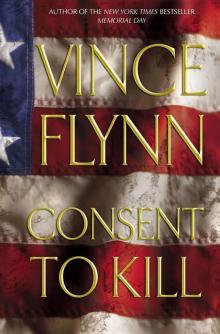 Consent to Kill
Consent to Kill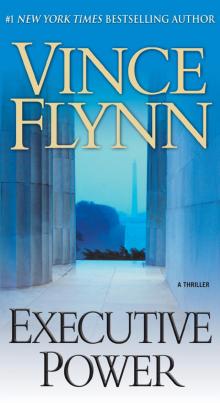 Executive Power
Executive Power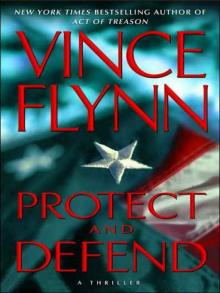 Protect and Defend
Protect and Defend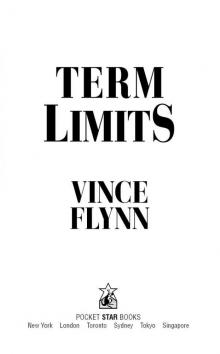 Term Limits
Term Limits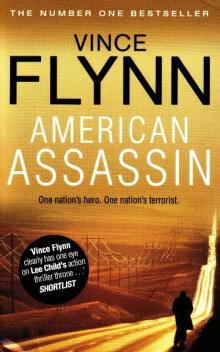 American Assassin
American Assassin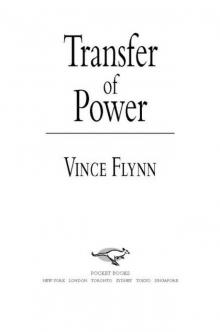 Transfer of Power
Transfer of Power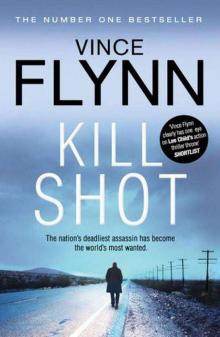 Kill Shot
Kill Shot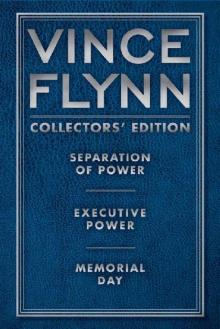 Vince Flynn Collectors' Edition 2
Vince Flynn Collectors' Edition 2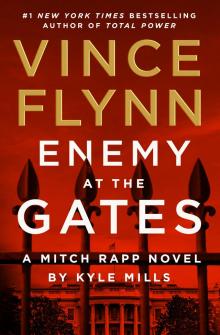 Enemy at the Gates
Enemy at the Gates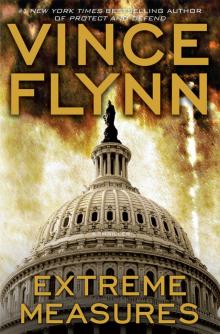 Extreme Measures
Extreme Measures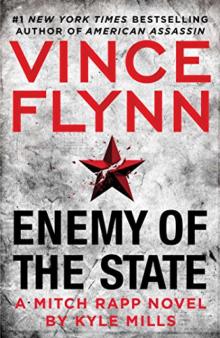 Enemy of the State
Enemy of the State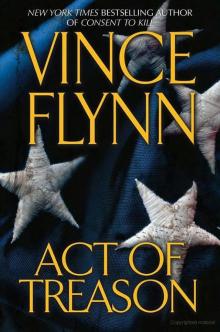 Act of Treason
Act of Treason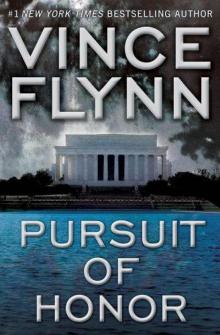 Pursuit of Honor
Pursuit of Honor The Survivor
The Survivor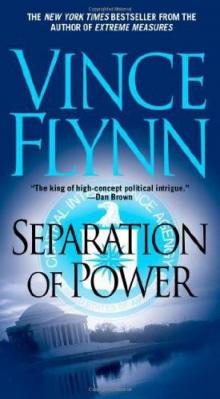 Separation of Power
Separation of Power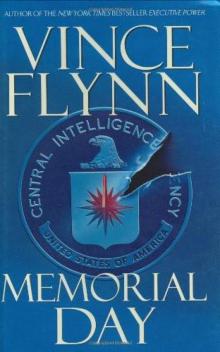 Memorial Day
Memorial Day The Last Man
The Last Man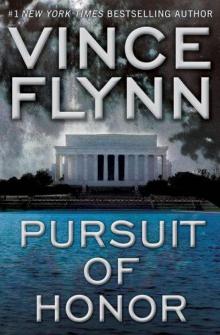 Pursuit of Honor_A Thriller
Pursuit of Honor_A Thriller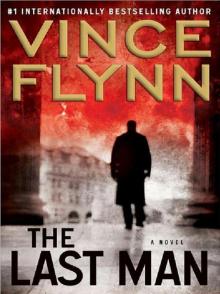 Mitch Rapp 13 - The Last Man
Mitch Rapp 13 - The Last Man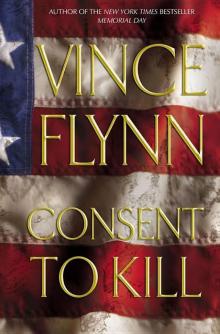 Consent to Kill:
Consent to Kill: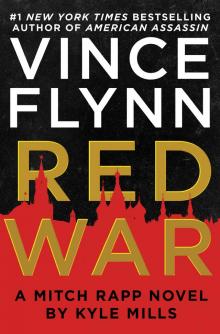 Red War
Red War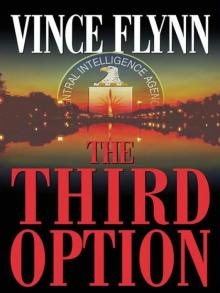 Mitch Rapp 02 - The Third Option
Mitch Rapp 02 - The Third Option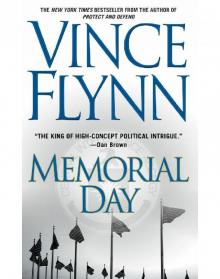 Mitch Rapp 05 - Memorial Day
Mitch Rapp 05 - Memorial Day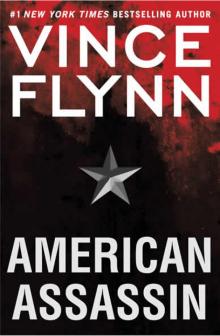 Mitch Rapp 11 - American Assassin
Mitch Rapp 11 - American Assassin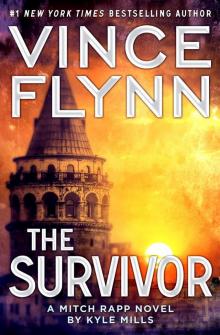 Mitch Rapp 14 - The Survivor
Mitch Rapp 14 - The Survivor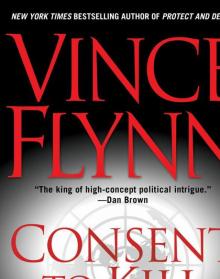 Mitch Rapp 06 - Consent to Kill
Mitch Rapp 06 - Consent to Kill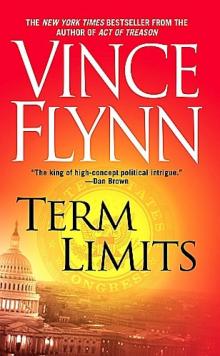 Term Limits mr-1
Term Limits mr-1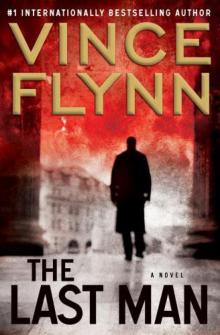 The Last Man mr-13
The Last Man mr-13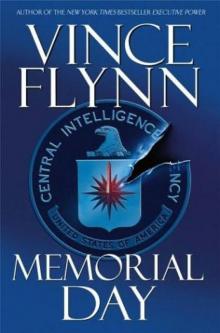 Memorial Day mr-5
Memorial Day mr-5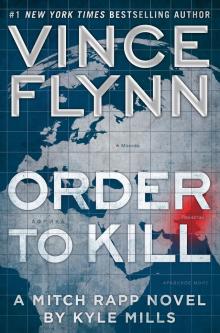 Order to Kill
Order to Kill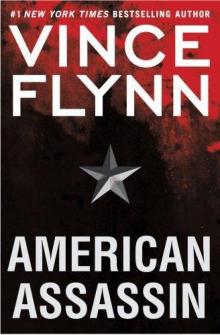 American Assassin: A Thriller
American Assassin: A Thriller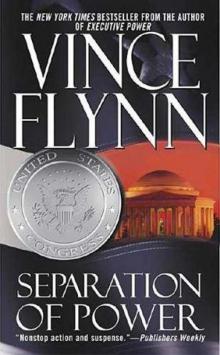 Separation of Power mr-3
Separation of Power mr-3